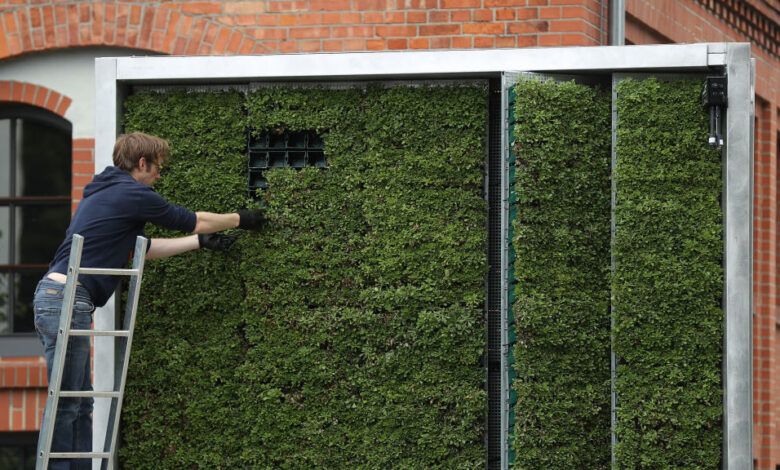
An employee of German start-up Green City Solutions puts the finishing touches on a CityTree on July 13, 2017 in Berlin, Germany. The CityTree is a panel covered on both sides with a kind of moss called pseudoscleropodium purum, which has the ability to negate large quantities of particulates, the fine particles produced by cars that are a major health hazard. The moss also removes nitrogen oxides and converts carbon dioxide into oxygen. The company claims a single CityTree panel that stands four meters tall and three meters wide offsets the equivalent of 240 tons of CO2 equivalents per year, doing the work of 275 urban trees, yet taking only a tiny fraction of the space. Photo Credit: Sean Gallup/Getty Images
Environment WorldBig Corporations and Small Startups Are on the Same Team in the “Race to Zero”
Big corporations are looking to team up with small businesses hoping to tackle the climate crisis and meet the global warming limits set in the 2015 Paris accord. Close to 300 companies have pledged to cut their emissions to net-zero by 2030.
“This (climate challenge) is something that none of us can solve alone,” says says Gonzalo Muñoz, Chile’s climate action champion and co-founder of TriCiclos, a circular economy company. “A fundamental part of this is that we have to solve it together.”
In June, the U.N. climate secretariat launched the “Race to Zero” alliance. To achieve this goal, startups could play an important role as they might have cutting-edge technology and ideas to turn the ship around and fix the damages done by global capitalism. “If big companies want to make a difference they really should be engaging startups,” says Robert Celik from Genecis Bioindustries, a Canada-based cleantech startup.



